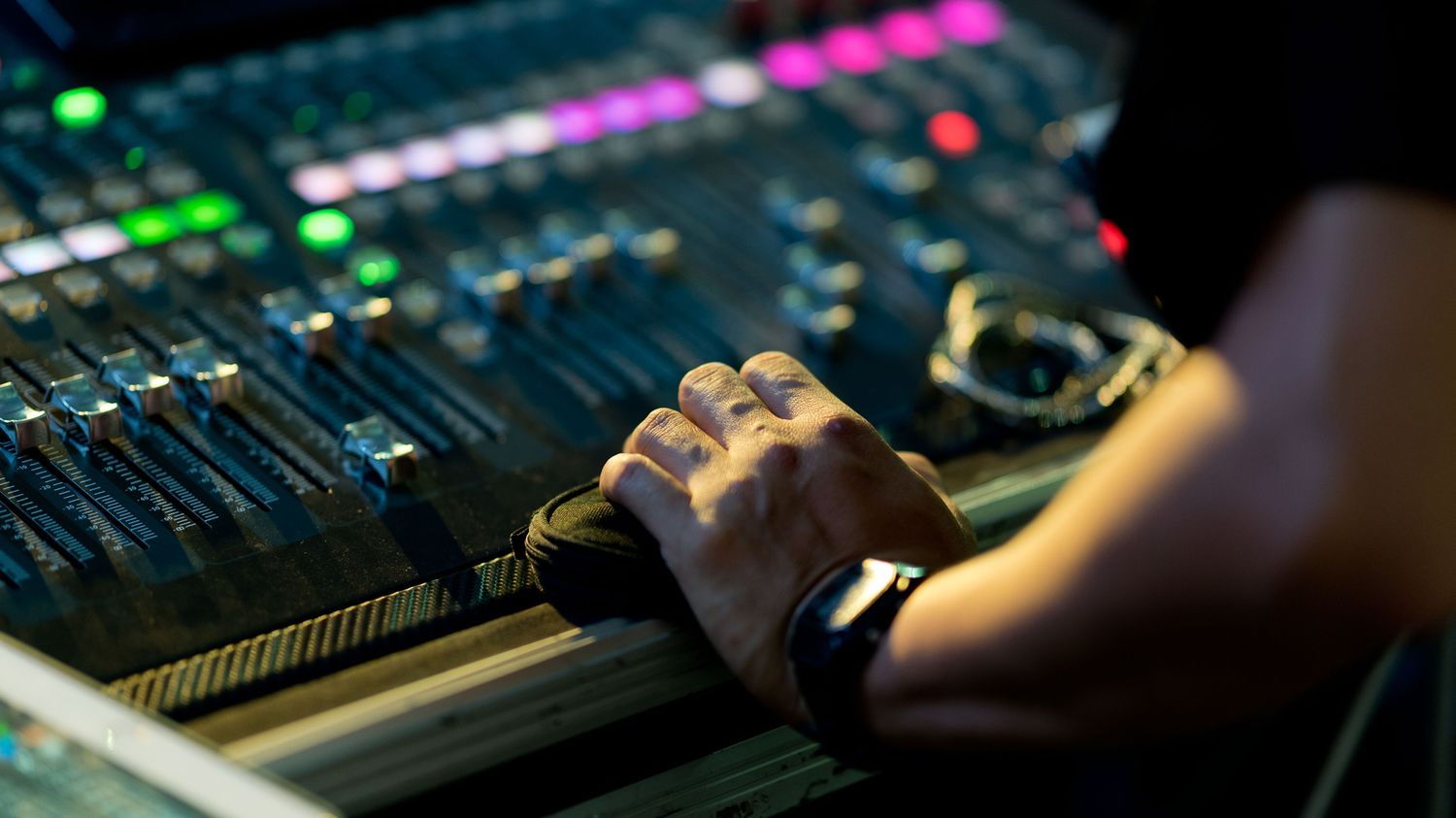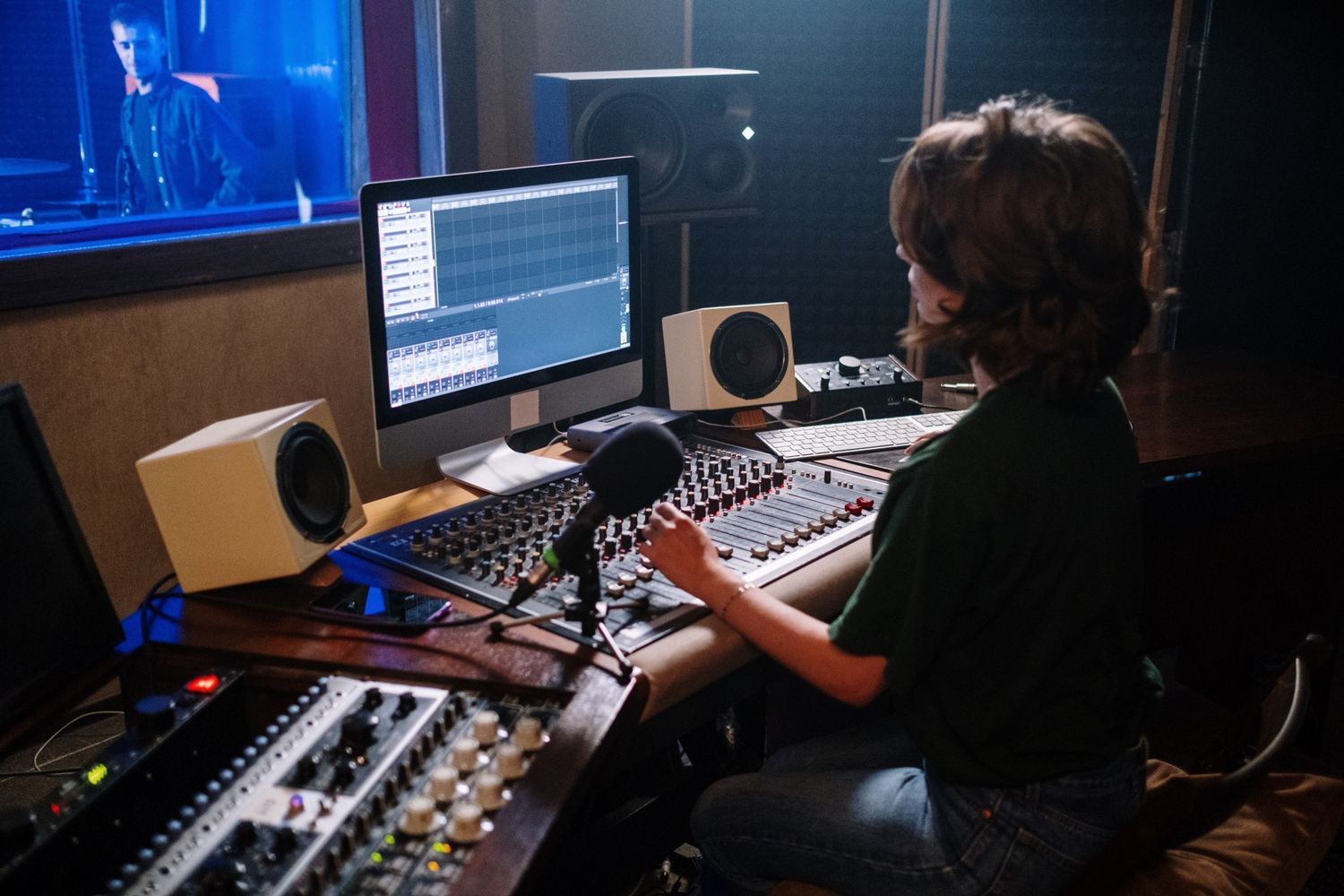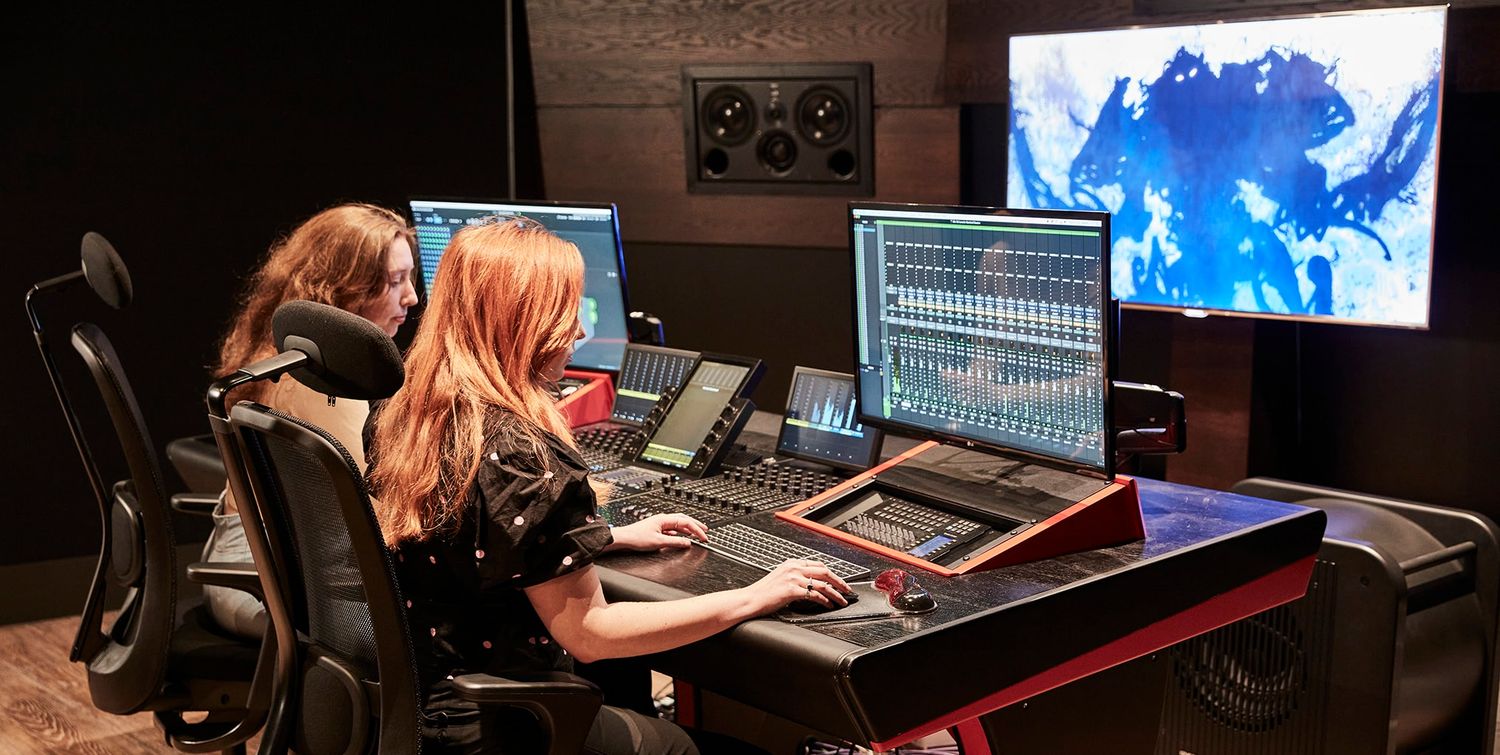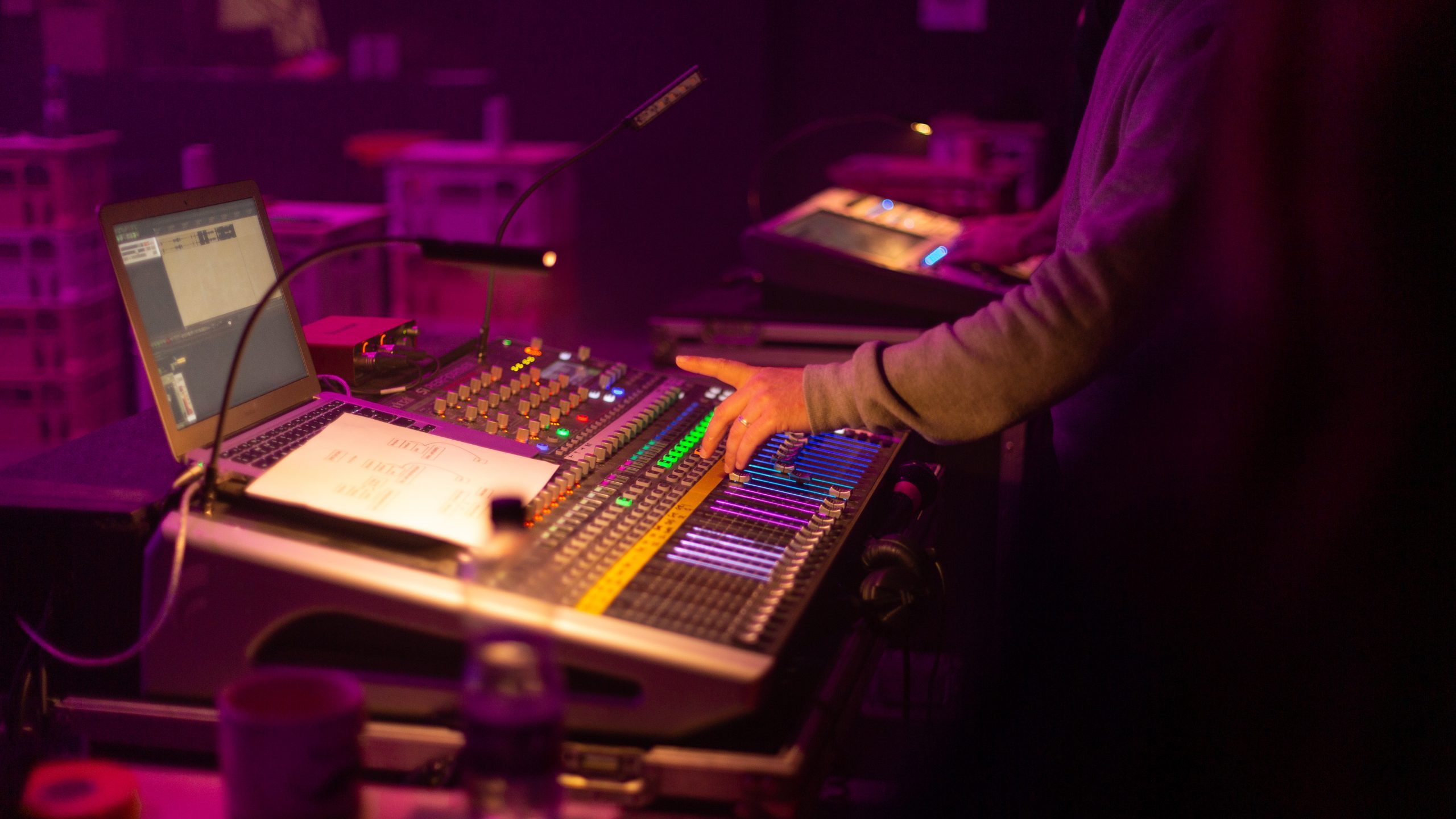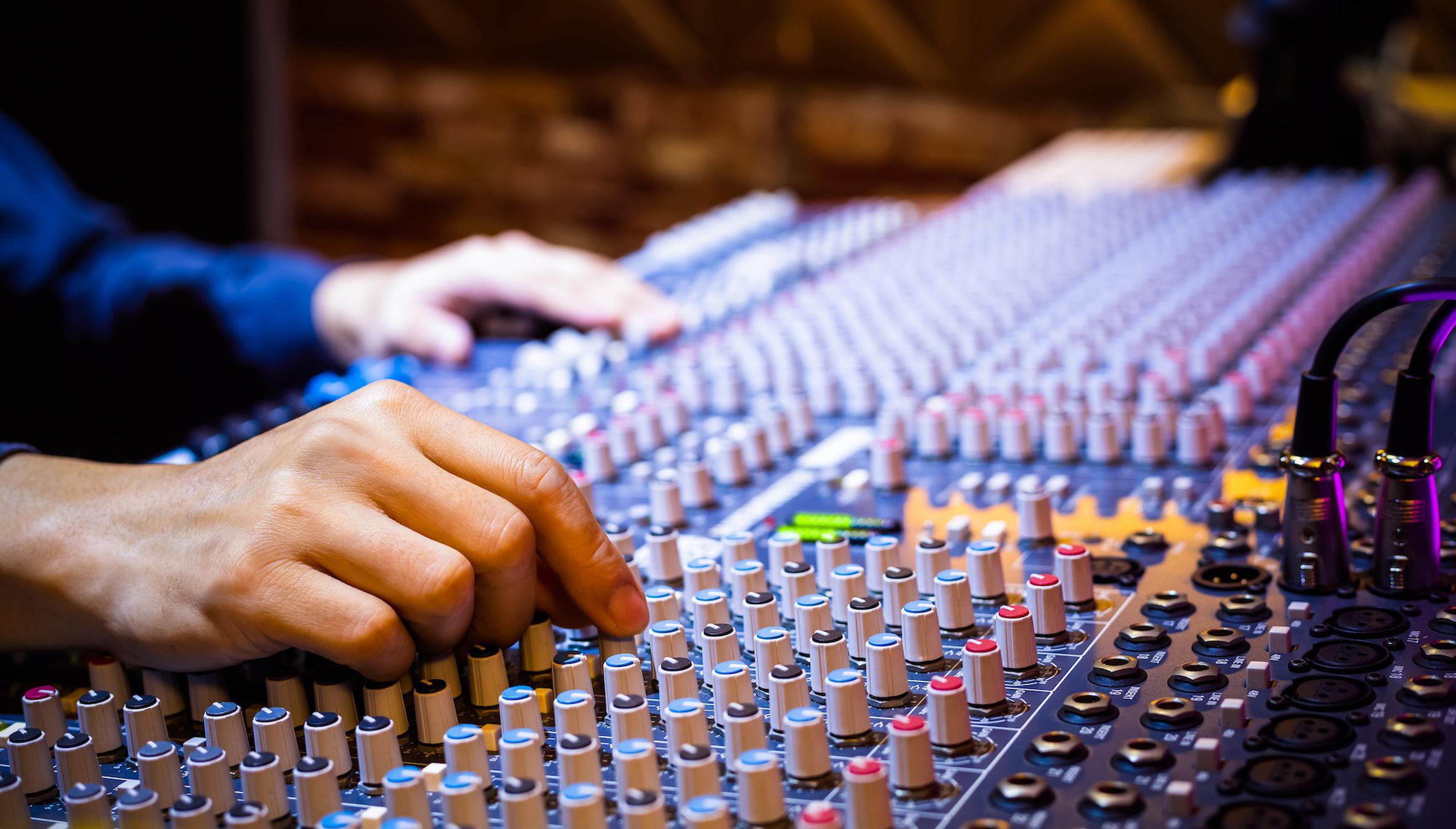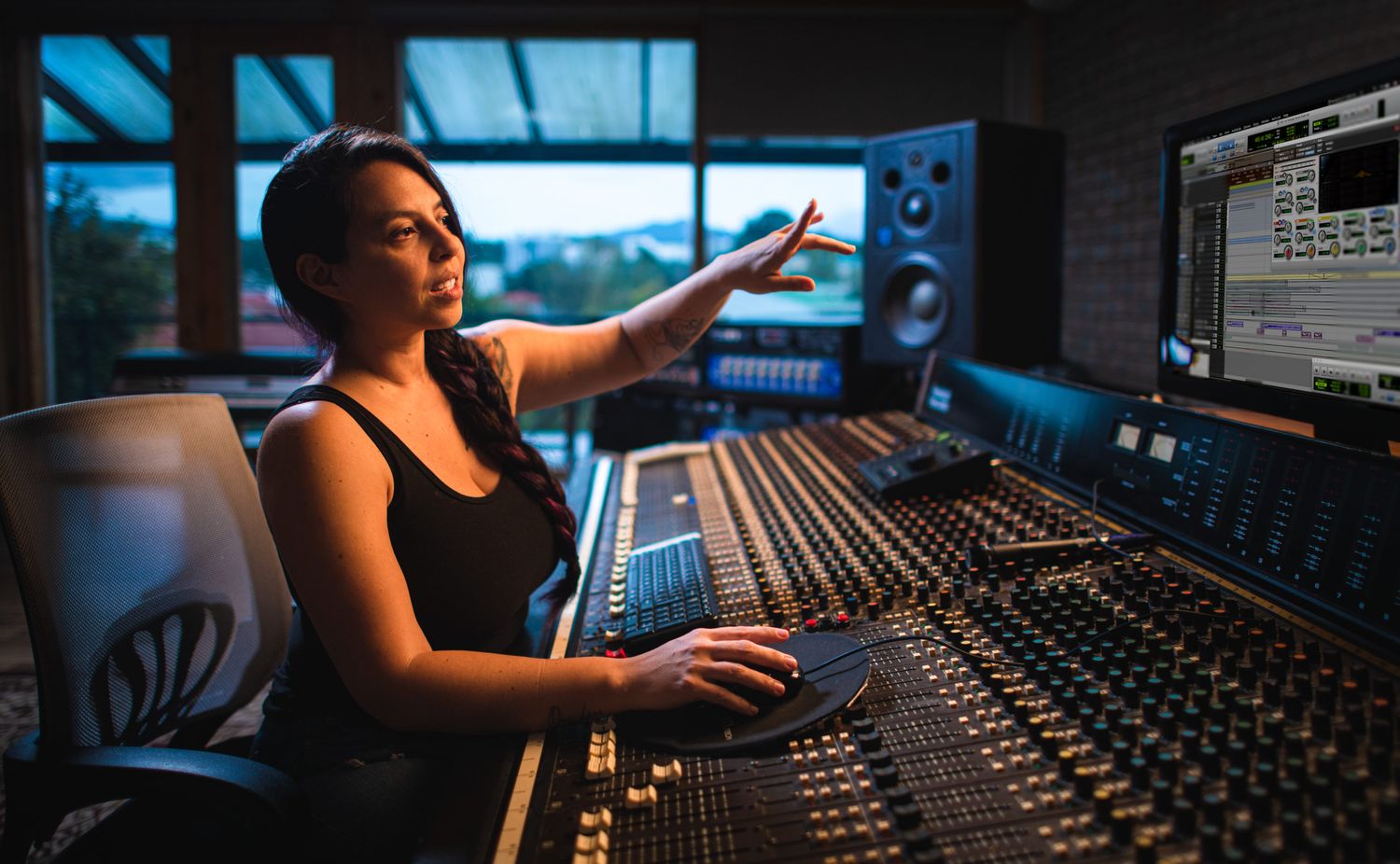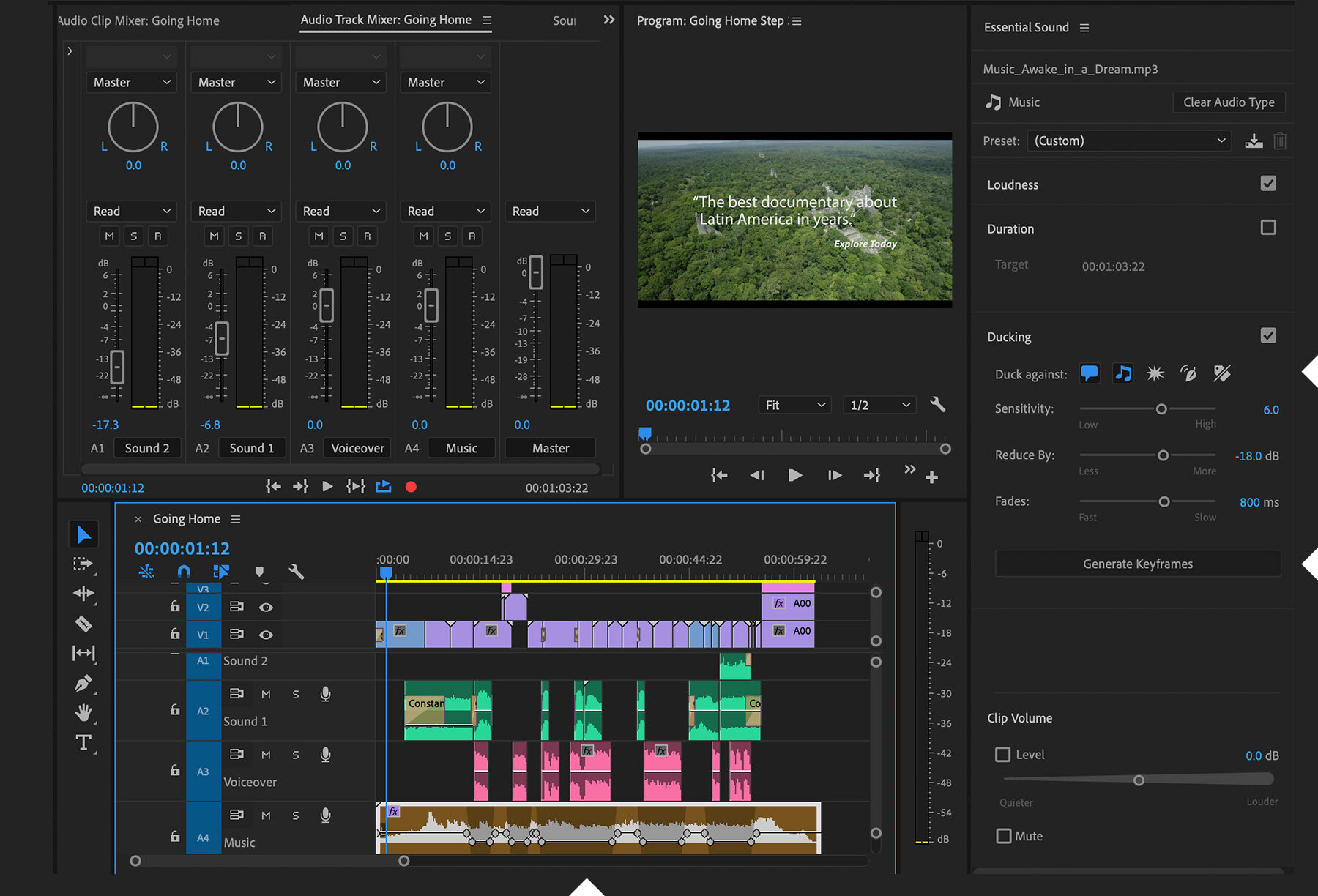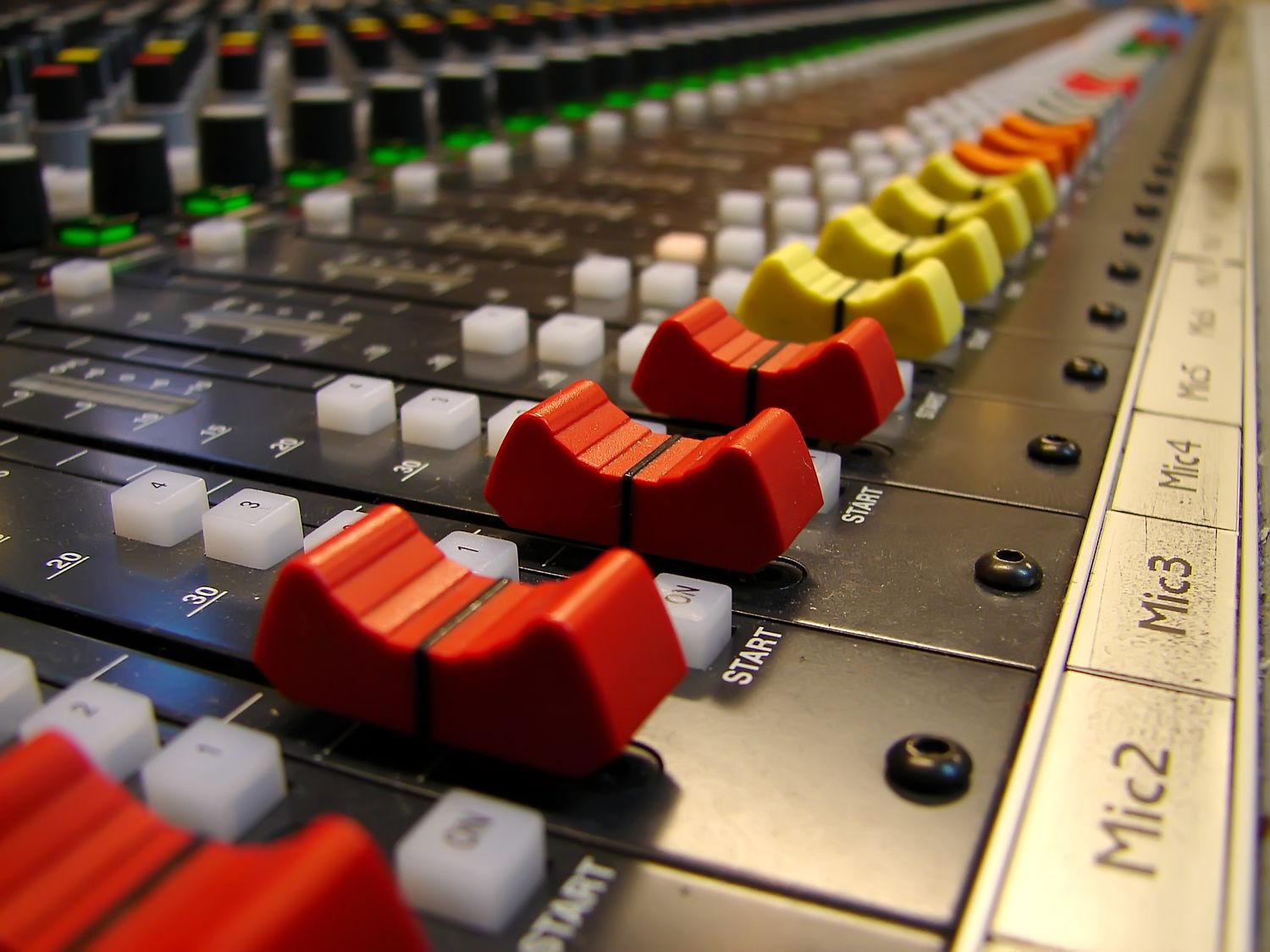Home>Production & Technology>Sound Engineer>What Is A Sound Engineer In Film
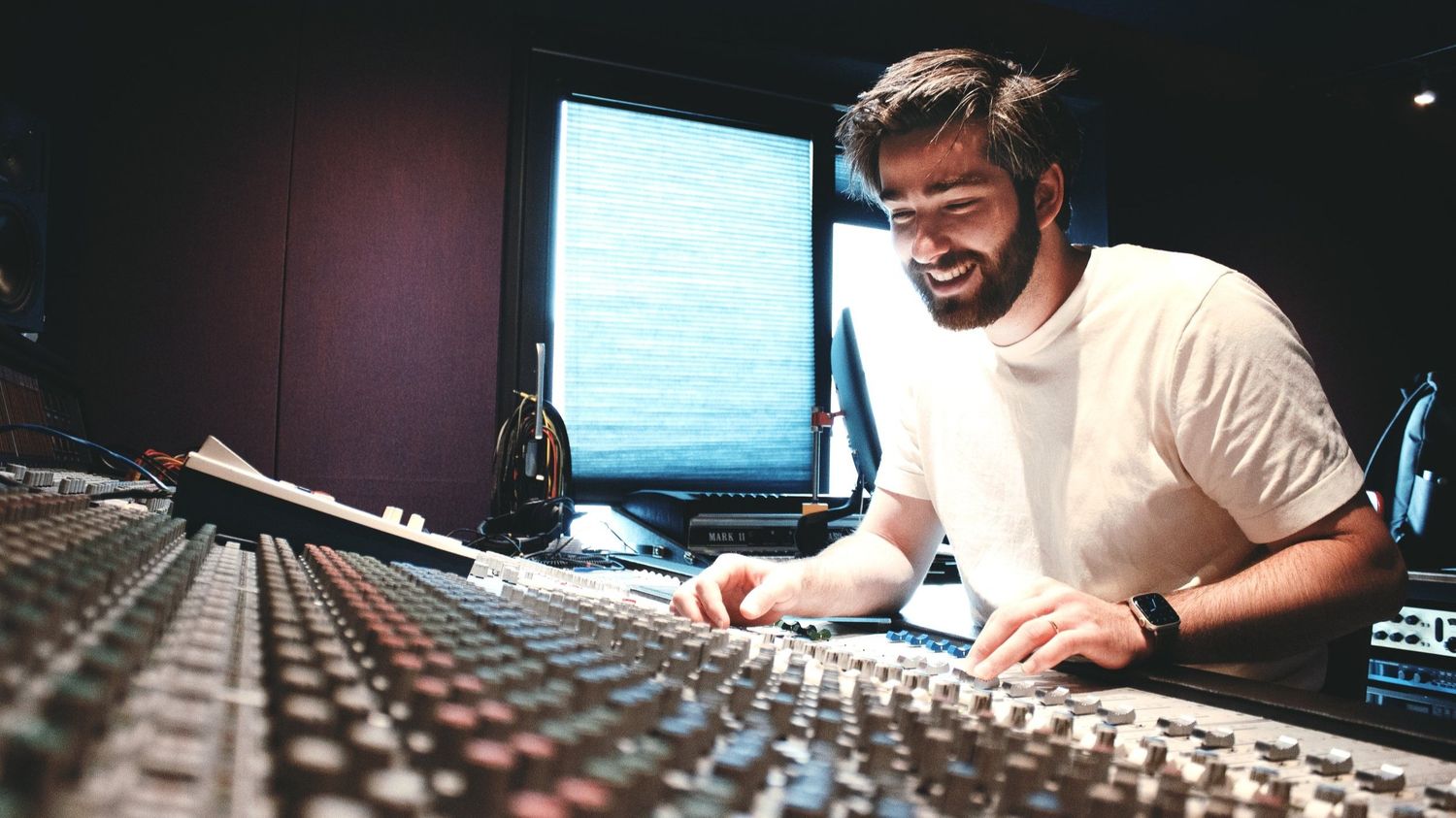

Sound Engineer
What Is A Sound Engineer In Film
Published: March 6, 2024
Learn about the role of a sound engineer in film production and the importance of their work in creating high-quality soundscapes. Explore the skills and responsibilities of a sound engineer in the film industry.
(Many of the links in this article redirect to a specific reviewed product. Your purchase of these products through affiliate links helps to generate commission for AudioLover.com, at no extra cost. Learn more)
Table of Contents
Introduction
Sound engineering is a crucial aspect of the filmmaking process, playing a pivotal role in creating an immersive and captivating cinematic experience. A sound engineer in film is responsible for shaping the auditory elements that complement the visual storytelling, adding depth, emotion, and realism to the on-screen narrative. Through the skillful manipulation of sound, a sound engineer enhances the overall impact of a film, drawing audiences into the story and evoking powerful emotional responses.
In the realm of film production, sound engineers are the unsung heroes who work tirelessly behind the scenes to ensure that every sound, from the subtle rustling of leaves to the thunderous roar of an explosion, is meticulously crafted to perfection. Their expertise lies in capturing, editing, and mixing audio to achieve a seamless and harmonious blend of sound that seamlessly integrates with the visual elements of a film.
The role of a sound engineer in film extends far beyond the technical aspects of audio production. It encompasses a deep understanding of storytelling, emotion, and the psychological impact of sound on the audience. Sound engineers possess a keen ability to translate the director's vision into a sonic landscape that enhances the narrative, heightens tension, and elicits an emotional response from viewers.
As we delve into the world of sound engineering in film, we will uncover the multifaceted responsibilities, technical skills, and creative prowess that define this integral role. From capturing the ambient sounds of a bustling city to orchestrating the symphony of a climactic battle scene, the work of a sound engineer is a symphony of artistry and technical precision. Let's embark on a journey to explore the captivating realm of sound engineering in film and gain a deeper appreciation for the indispensable role it plays in shaping the magic of cinema.
Role of a Sound Engineer in Film
A sound engineer in film holds a pivotal role in shaping the auditory landscape of a movie, working in tandem with the director, cinematographer, and other key creatives to craft a rich and immersive sonic experience. Their primary objective is to capture, manipulate, and blend audio elements to enhance the storytelling and evoke emotional responses from the audience.
At the heart of their role lies the art of recording and editing sound. Whether it's capturing the subtle nuances of dialogue during intimate conversations or amplifying the thunderous reverberations of a high-octane action sequence, the sound engineer meticulously curates every auditory detail to align with the director's vision. This involves utilizing an array of specialized equipment, such as high-quality microphones, recording devices, and digital audio workstations, to capture and refine the raw audio material.
Furthermore, the sound engineer collaborates closely with the director and other creative stakeholders to understand the emotional beats and narrative nuances of each scene. By doing so, they can tailor the sound design to complement the visual storytelling, heightening dramatic tension, amplifying comedic timing, or instilling a sense of foreboding through carefully crafted soundscapes.
In post-production, the sound engineer takes on the task of mixing and mastering the audio elements to achieve a harmonious balance that seamlessly integrates with the visual components of the film. This involves layering sound effects, ambient noise, music, and dialogue to create a cohesive auditory tapestry that enriches the overall viewing experience.
Moreover, the sound engineer plays a crucial role in ensuring technical precision and adherence to industry standards, such as maintaining optimal sound levels, clarity, and spatial positioning of audio within the film's soundstage. Their expertise in sound dynamics, acoustics, and spatial audio manipulation allows them to create a three-dimensional sonic environment that envelops the audience, drawing them deeper into the cinematic world.
In essence, the role of a sound engineer in film transcends mere technical proficiency; it embodies a fusion of artistic sensibility, technical prowess, and a deep understanding of storytelling. Through their meticulous craft, sound engineers breathe life into the auditory dimension of cinema, enriching the visual narrative with a symphony of sound that resonates with audiences on a profound emotional level.
Responsibilities of a Sound Engineer
The responsibilities of a sound engineer in the realm of film production encompass a diverse array of tasks that collectively contribute to the creation of a captivating auditory experience. These responsibilities extend across various stages of the filmmaking process, from pre-production to post-production, and require a blend of technical expertise, creative insight, and meticulous attention to detail.
During pre-production, a sound engineer collaborates closely with the director and production team to conduct location scouting and assess the acoustic properties of potential filming sites. This involves identifying potential challenges related to ambient noise, reverberation, and other acoustic factors that could impact sound recording. By conducting thorough assessments and proposing effective solutions, the sound engineer ensures that the audio captured during filming maintains optimal clarity and fidelity.
Once filming commences, the sound engineer assumes the critical role of recording on-set audio, capturing dialogue, ambient sounds, and other essential auditory elements. This involves strategically positioning microphones, monitoring sound levels, and mitigating environmental factors that could compromise audio quality. The sound engineer works in tandem with the boom operator and other crew members to orchestrate seamless audio capture, ensuring that every spoken word and environmental sound is faithfully preserved.
In post-production, the sound engineer transitions into the realm of audio editing and mixing, where they meticulously refine and enhance the recorded audio material. This involves tasks such as dialogue editing to remove extraneous noise, sound effects design to create immersive sonic environments, and music integration to complement the emotional beats of the narrative. Through the adept use of digital audio workstations and specialized software, the sound engineer weaves together a symphony of sound that harmonizes with the visual elements of the film.
Furthermore, the sound engineer is responsible for ensuring that the final audio mix adheres to industry standards and technical specifications. This includes optimizing sound levels, balancing audio dynamics, and fine-tuning spatial positioning to create a cohesive and immersive auditory experience. Additionally, the sound engineer collaborates with the re-recording mixer to integrate the final audio mix with the visual components of the film, achieving a seamless fusion of sound and image.
In essence, the responsibilities of a sound engineer in film encompass a comprehensive spectrum of tasks, from capturing pristine on-set audio to sculpting a rich and evocative auditory landscape in post-production. Their dedication to preserving sonic fidelity and enhancing the emotional impact of the narrative underscores the indispensable role they play in shaping the immersive magic of cinema.
Skills and Qualifications Required
The role of a sound engineer in film demands a unique blend of technical expertise, creative acumen, and a deep understanding of the intricacies of audio production. Aspiring sound engineers must possess a diverse skill set and acquire specific qualifications to excel in this dynamic and multifaceted field.
Technical Proficiency
Sound engineers must demonstrate a mastery of audio recording equipment, digital audio workstations (DAWs), and specialized software used for sound editing and mixing. Proficiency in microphone selection and placement, knowledge of signal flow and audio routing, and a keen understanding of sound dynamics are essential technical skills that form the foundation of a sound engineer's craft.
Sound Design and Editing
A comprehensive understanding of sound design principles, including the creation and manipulation of sound effects, ambient noise, and Foley artistry, is crucial for a sound engineer. Proficiency in dialogue editing, noise reduction techniques, and audio restoration processes is essential to ensure the clarity and fidelity of recorded audio material.
Musical Aptitude
A sound engineer's ability to comprehend musical composition, tonal balance, and rhythmic dynamics is invaluable, particularly when integrating music into the film's auditory landscape. A keen ear for musical nuances and an understanding of how music can evoke emotions and enhance storytelling are essential attributes for a sound engineer.
Acoustic Knowledge
A sound engineer must possess a deep understanding of acoustics, spatial audio principles, and the psychoacoustic effects of sound on human perception. This knowledge enables them to create immersive sonic environments and manipulate spatial positioning to craft a three-dimensional auditory experience for the audience.
Communication and Collaboration
Effective communication and collaboration skills are paramount for a sound engineer, as they often work closely with directors, producers, and other creative professionals. The ability to interpret and translate the director's vision into a sonic reality, while also incorporating feedback and suggestions, is essential for a sound engineer to thrive in a collaborative filmmaking environment.
Qualifications
While formal education is not always a prerequisite, many sound engineers pursue degrees or certifications in audio engineering, sound production, or related fields. Additionally, hands-on experience through internships, apprenticeships, or freelance projects can provide invaluable practical training and industry exposure.
In essence, the skills and qualifications required for a sound engineer in film encompass a harmonious blend of technical prowess, creative ingenuity, and a deep passion for the art of sound. By honing these skills and acquiring the necessary qualifications, aspiring sound engineers can embark on a fulfilling journey in shaping the auditory magic of cinema.
Importance of Sound Engineering in Film
The importance of sound engineering in film cannot be overstated, as it serves as a cornerstone of the cinematic experience, profoundly influencing the emotional impact and immersive quality of a movie. Sound engineering plays a pivotal role in shaping the auditory landscape of a film, enriching the visual storytelling with a symphony of sound that resonates with audiences on a profound emotional level.
First and foremost, sound engineering in film contributes to the creation of a multi-dimensional sensory experience. By skillfully capturing, editing, and mixing audio elements, sound engineers breathe life into the on-screen narrative, transporting viewers into the heart of the story through the evocative power of sound. From the gentle rustling of leaves in a tranquil forest to the thunderous roar of a climactic battle, sound engineering infuses each scene with depth, realism, and emotional resonance.
Moreover, sound engineering enhances the overall immersion and believability of a film. Through the strategic placement of sound effects, spatial audio manipulation, and meticulous attention to sonic detail, sound engineers create a sonic environment that mirrors the visual reality, blurring the boundaries between fiction and reality. This seamless integration of sound and image fosters a heightened sense of engagement and captivation among audiences, drawing them deeper into the cinematic world.
Furthermore, sound engineering contributes significantly to the emotional impact and storytelling nuances of a film. By leveraging sound design, music composition, and dialogue clarity, sound engineers have the power to evoke a wide spectrum of emotions, from heart-pounding excitement to poignant introspection. The sonic tapestry they weave amplifies dramatic tension, underscores character motivations, and imbues each moment with an emotional depth that lingers long after the credits roll.
In addition, sound engineering in film serves as a conduit for artistic expression and creative innovation. Sound engineers collaborate closely with directors and creative teams to translate abstract concepts and emotional nuances into tangible sonic experiences. Their ability to craft unique auditory identities for films, ranging from otherworldly science fiction landscapes to historically accurate period settings, showcases the boundless creativity and artistic versatility inherent in sound engineering.
Ultimately, the importance of sound engineering in film lies in its ability to transcend the realm of technical proficiency and emerge as a potent catalyst for audience engagement, emotional resonance, and immersive storytelling. As the unsung heroes behind the scenes, sound engineers wield the power to elevate the cinematic experience, infusing each frame with a symphony of sound that reverberates in the hearts and minds of viewers, leaving an indelible imprint on the art of filmmaking.
Conclusion
In conclusion, the role of a sound engineer in film is an indispensable and multifaceted one, encompassing a harmonious blend of technical expertise, creative artistry, and a deep understanding of storytelling. Sound engineers serve as the architects of auditory immersion, sculpting a rich and evocative sonic landscape that harmonizes with the visual elements of a film to captivate audiences and evoke powerful emotional responses.
Throughout the filmmaking process, from pre-production to post-production, sound engineers undertake a diverse array of responsibilities, from capturing pristine on-set audio to meticulously refining and integrating sound elements to enhance the overall viewing experience. Their dedication to preserving sonic fidelity, enhancing emotional impact, and fostering a seamless fusion of sound and image underscores the indispensable role they play in shaping the immersive magic of cinema.
The skills and qualifications required for a sound engineer in film encompass a harmonious blend of technical prowess, creative ingenuity, and a deep passion for the art of sound. From technical proficiency in audio recording equipment and digital audio workstations to a comprehensive understanding of sound design principles and musical aptitude, sound engineers embody a unique fusion of artistry and technical precision.
Moreover, the importance of sound engineering in film cannot be overstated, as it serves as a cornerstone of the cinematic experience, profoundly influencing the emotional impact and immersive quality of a movie. Sound engineering contributes to the creation of a multi-dimensional sensory experience, enhances the overall immersion and believability of a film, and serves as a conduit for artistic expression and creative innovation.
In essence, the work of a sound engineer in film transcends mere technical proficiency; it embodies a fusion of artistic sensibility, technical prowess, and a deep understanding of storytelling. Through their meticulous craft, sound engineers breathe life into the auditory dimension of cinema, enriching the visual narrative with a symphony of sound that resonates with audiences on a profound emotional level. As the unsung heroes behind the scenes, sound engineers wield the power to elevate the cinematic experience, infusing each frame with a symphony of sound that reverberates in the hearts and minds of viewers, leaving an indelible imprint on the art of filmmaking.

